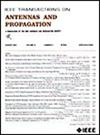基于生成对手学习的无监督三维SAR成像网络
IF 5.8
1区 计算机科学
Q1 ENGINEERING, ELECTRICAL & ELECTRONIC
引用次数: 0
摘要
从稀疏采样的回波测量数据中重建三维合成孔径雷达(3D SAR)图像对于简化系统复杂性和降低传感成本具有重要意义。传统的基于压缩感知(CS)的成像算法通过怀疑成像空间的稀疏性来解决这一问题,具有良好的重建性能,但无法解决弱稀疏场景下的成像任务。此外,传统的迭代成像算法还存在计算量大、参数整定繁琐、自适应能力差等问题。为了解决这些问题,提出了一种新的无监督三维SAR图像重建网络,用于从相应的不完全回波测量中估计三维SAR图像。拟议的方案包括两个阶段。其中,第一阶段旨在通过设计基于部分卷积的生成对抗网络(PCGAN)的生成对抗网络,从不完全观测中估计缺失的回波元素。第二阶段的重点是通过构建无监督自适应快速迭代收缩阈值算法(FISTA)启发的深度展开网络(AdaFIST-Net),从估计的回波重构目标合成孔径雷达(SAR)图像。最后进行了仿真和实测实验。实验结果表明,在各种采样条件和信噪比情况下,所提出的成像网络在从稀疏采样回波中重建三维图像方面优于目前最先进的算法。本文章由计算机程序翻译,如有差异,请以英文原文为准。
Unsupervised 3D SAR Imaging Network Based on Generative Adversary Learning
Reconstructing 3-D synthetic aperture radar (3D SAR) images from the sparsely sampled echo measurements holds significant importance in simplifying the system complexity and sensing costs. The conventional compressed sensing (CS)-based imaging algorithms address the problem by suspecting the sparsity of the imaging space, showing good reconstruction performance but failing to tackle the imaging tasks in weakly sparse scenes. Besides, traditional iterative imaging algorithms also suffer from high computational complexity, cumbersome parameter tuning, and poor adaptability. To address these issues, a novel unsupervised 3D SAR image reconstruction network is proposed for estimating 3D SAR images from the corresponding incomplete echo measurements. The proposed scheme contains two stages. Wherein, the first stage aims to estimate the missing echo elements from the incomplete observations by designing a generative adversary network based on partial convolution-based generative adversarial network (PCGAN). The second phase focuses on reconstructing the target synthetic aperture radar (SAR) image from the estimated echoes by constructing an unsupervised adaptive fast iterative shrinkage-thresholding algorithm (FISTA)-inspired deep unfolding network (AdaFIST-Net). Finally, simulations and real-measured experiments are carried out. Experimental results show that the proposed imaging network outperforms the current state-of-the-art algorithms in reconstructing 3-D images from sparsely sampled echoes in various sampling conditions and SNR cases.
求助全文
通过发布文献求助,成功后即可免费获取论文全文。
去求助
来源期刊
CiteScore
10.40
自引率
28.10%
发文量
968
审稿时长
4.7 months
期刊介绍:
IEEE Transactions on Antennas and Propagation includes theoretical and experimental advances in antennas, including design and development, and in the propagation of electromagnetic waves, including scattering, diffraction, and interaction with continuous media; and applications pertaining to antennas and propagation, such as remote sensing, applied optics, and millimeter and submillimeter wave techniques

 求助内容:
求助内容: 应助结果提醒方式:
应助结果提醒方式:


